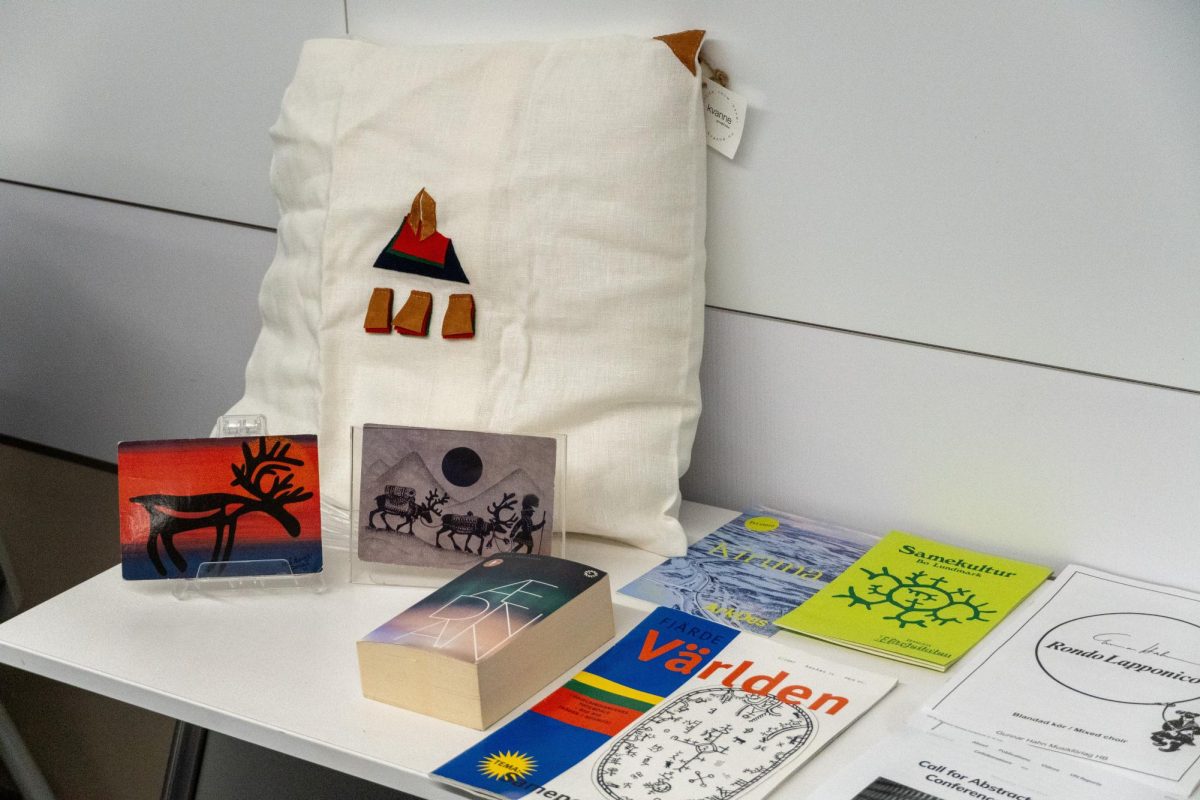The Department of Linguistics hosted a film screening and academic seminar on Thursday in celebration of the Sámi peoples, an indigenous culture of Scandinavia.
“The film covers so much — its history, its struggles, its climate change, everything that affects their life,” Gunnel Bergström said. “It’s also so poetic and has a sense of humor.”
The film, “Historjá – Stygn för Sápmi” (2022), showcases the impact that climate change has on the Sámi peoples, many of whom are nomadic reindeer herders. Swedish program coordinator Bergström said the film was chosen due to the way it portrays the problems the Sámi people face.
Following the film screening, a Zoom discussion was held to discuss the book “Stolen,” written by Ann-Helén Laestadius. Anne Heith, an associate professor in comparative literature and media studies at Umeå University, was also on the Zoom call along with Laestadius.
Hosted by Bergström, the discussion centered on Sámi culture and identity. Heith spoke about how diverse the people are despite being under one umbrella.
“In the Sámi people, there is not a homogeneity, but a great diversity,” Heith said.
“Stolen”’s premise follows a young Sámi woman who is fed up with the reindeer killings, a hate crime in Sámi culture, going uninvestigated by the police. As she pushes back against the system, she endangers herself as the hunter comes after her, leading to a dramatic confrontation.
Laestadius brought up her writing process as having to return to Kiruna, Sweden. The critically acclaimed author said she has to be in nature to get her inspiration.
“I need the nature to write,” said Laestadius. “It’s a really great place to get inspiration from. I need the nature to write. It’s absolutely necessary … it’s how I write my books.”
The Sámi language started to disappear from the knowledge of its people due to their forced enrollment in nomad schools. Laestadius made a note to put as much of the language in “Stolen” as she could.
“Sámi language is so important to many of us,” Laestadius said. “It was very important to me to have as many Sámi sentences or words. Many of us lose parts of the language.”
Her next book, “Punished,” focuses on this loss of language and takes place at one of the nomad schools during the early 20th century where young Sámi children were not allowed to speak their native tongue.
One attendee, senior digital narrative and interactive design major Kyra Schultz, had recently returned from Ecuador after a visit to the Kichwas community. Schultz noted the similarities she saw between both Indigenous groups.
“Hearing the similarities that Indigenous people in Sweden face and what Indigenous people in South America face was really interesting, because they face a lot of the same struggles,” Schultz said.
A film adaptation of “Stolen” is set to come out on Netflix on April 12. Laestadius is an executive producer, and she said the film is important to represent the oppression Sámi people face and the Swedish government’s reaction.
“It was such a great experience to be a part of this,” Laestadius said. “I hope the audience will like it. It is important to get this out into the world to show that Sweden is not always this nice democratic country. They have mistreated their Indigenous people for decades.”
Heith and Laestadius brought up the high levels of suicide Sámi people face — over an 80% rate — where a majority of cases were men. Laestadius hopes her books will help raise awareness on the issue.
“Many Sámi who I have talked to that have read my book told me it was very real,” said Laestadius. “They told me it hit very close to their reality.”
When learning about the Sámi, Laestadius hopes it will inspire people to learn more about native cultures in their communities as well.
“This will lead to a bigger interest in the Sámi. Also, it makes you interested in your own Indigenous people and how you’re treating them.” Laestadius said.


